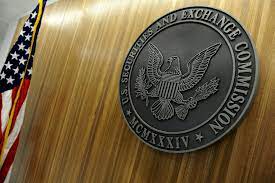The failure of the FTX exchange in November 2022 sent shockwaves through the cryptocurrency industry, leading to increased scrutiny from the US Securities and Exchange Commission (SEC).
The regulatory agency, aiming to salvage its reputation after the $8 billion fraud incident, has intensified its efforts to control the crypto sector. Recent lawsuits against major players like Coinbase and Binance are part of the SEC’s broader initiative to restore order in the market.
However, concerns have been raised about the SEC’s motives, with some suggesting that its actions may be driven more by reputation management than a genuine need to protect investors.
Following the FTX case, the SEC has witnessed a significant rise in the number of applications filed against crypto-friendly companies in US federal districts.
In the six months leading up to the exchange’s collapse, the SEC had filed only six cases in this context. However, that number surged to 19 in early 2023, indicating a sharp increase in regulatory actions.
While this surge might suggest a need for stricter controls, some believe the SEC’s primary goal is to repair its reputation rather than address actual wrongdoing within the crypto industry.
The recent indictments of Binance and Coinbase have shed light on the intricate corporate structures behind these platforms.
Binance, being a global company operating in a still unregulated industry, had to navigate through various affiliates and jurisdictions to mitigate risks associated with government regulations.
The complexity of such structures, while necessary for operational reasons, has made it challenging to oversee the activities of these platforms effectively. Critics argue that the SEC’s actions highlight its attempt to salvage its reputation rather than demonstrating the inherent unsustainability or danger of these businesses.
Speculation and doubts have arisen concerning Gary Gensler, the SEC’s Executive Chairman, and his potential involvement in the FTX scam.
Some point to his previous ties with individuals associated with FTX, raising questions about conflicts of interest. While these claims are not sufficient to accuse Gensler of fraudulent collusion, they have added an element of doubt to the situation.
Furthermore, reports have emerged regarding Gensler’s past application for a compliance role at Binance in 2019, which was allegedly rejected by CEO Changpeng Zhao. These complexities in relationships and professional history cast doubts on the objectivity of the SEC’s actions.



